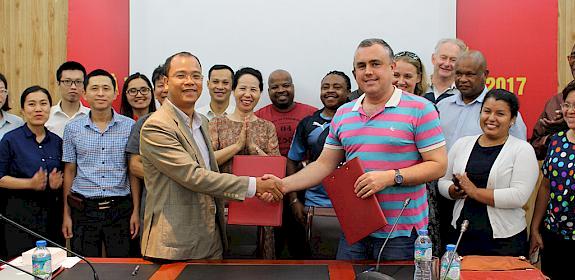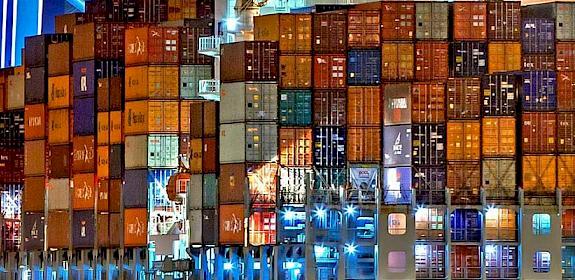TRAFFIC partners with National Assembly of Viet Nam
Ha Noi, Viet Nam, 30th June 2020 – TRAFFIC, the Office of the National Assembly of Viet Nam, and the US Agency for International Development (USAID) convened top government leaders and relevant stakeholders today for a high-level dialogue focusing on “Strengthening legislation and communication to reduce demand for illegal wildlife products.” The event is the second in a series of three events organised by the USAID Wildlife Asia project aimed at ending the illegal consumption of wildlife products in Viet Nam.
A total of 35 Vietnamese government leaders and conservation experts discussed how Viet Nam could improve its wildlife-related policies and legal system for wildlife management and protection, as well as promote demand reduction activities to enhance wildlife conservation.
The first dialogue, held in July 2019, resulted in the development of the Handbook on Wildlife Conservation Policy. The Handbook documents and expands on the key agreements and recommendations reached at the first high-level event to serve as a guide for policymakers. In the second dialogue, National Assembly members and stakeholders advanced discussions to promote widespread understanding of the negative consequences of illegal wildlife consumption, showcasing best practices from other countries.
Looking beyond awareness raising campaigns, the event championed social and behavioural change communication initiatives that use evidence-based behavioural science to change the consumption habits of target audiences and help reduce demand for illegal wildlife in Vietnam. International conservation experts shared information from other countries and called on the National Assembly to adopt best practices of other governments to counter wildlife trafficking.
Since the first high-level discussion in July 2019, robust progress has been made to combat wildlife crime in Viet Nam. For example, on 28 January 2020, Viet Nam banned the import of wild animals in the wake of the COVID-19 outbreak. We hope that today’s event will bring even more progress, including guidance for comprehensive, focused social and behavioural change communications strategies that will lead to a reduction in demand for illegal wildlife products.
Pham Dinh Toan of the Office of the National Assembly
“We are pleased that the Government of Viet Nam is in favour of introducing effective initiatives to deter wildlife crime and reduce consumer demand. This event is vital to translate political will into action,” said USAID/Viet Nam Mission Director Michael Greene.
“International pressure and the COVID-19 pandemic are driving the country to adopt stronger policies and effective consumer demand reduction measures. Wildlife trade is not only pushing wildlife species to extinction, but also spreads zoonotic diseases that threaten human lives and even economic development. Protecting wildlife and their habitats can help prevent future pandemics and promote global security and sustainable development.”
In recent years, Viet Nam has been active in passing legislation to counter wildlife trafficking, and the country has one of the most comprehensive legal frameworks in the region. Since the beginning of 2018, Viet Nam’s amended penal code has strengthened penalties for wildlife trafficking by introducing fines of up to VND15 billion (around USD630,000) and prison sentences of up to 15 years. Nevertheless, the country continues to be both a destination and transit hub for illegal wildlife products. These dialogues are intended to support the National Assembly and the rest of the government in its efforts to end illegal wildlife trade. Recommendations from the dialogues will be compiled into guidance for policymakers in planning and implementing new wildlife-focused legislation and demand reduction campaigns.
About USAID

The United States Agency for International Development (USAID) is responsible for the majority of overseas development assistance from the United States Government and works to end extreme poverty and promote resilient, democratic societies while advancing security and prosperity for America and the world. www.usaid.gov/
About USAID Wildlife Asia
USAID Wildlife Asia works to address wildlife trafficking as a transnational crime. The project works to reduce consumer demand for wildlife parts and products, strengthen law enforcement, enhance legal and political commitment and support regional collaboration to reduce wildlife crime in Southeast Asia, particularly Cambodia, China, Laos, Thailand and Viet Nam. USAID Wildlife Asia focuses on four species: elephant, rhinoceros, tiger and pangolin. For more information, please visit www.usaidwildlifeasia.org




